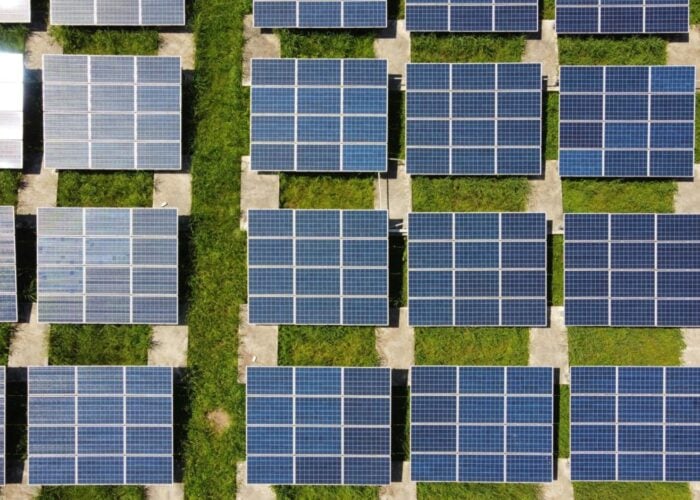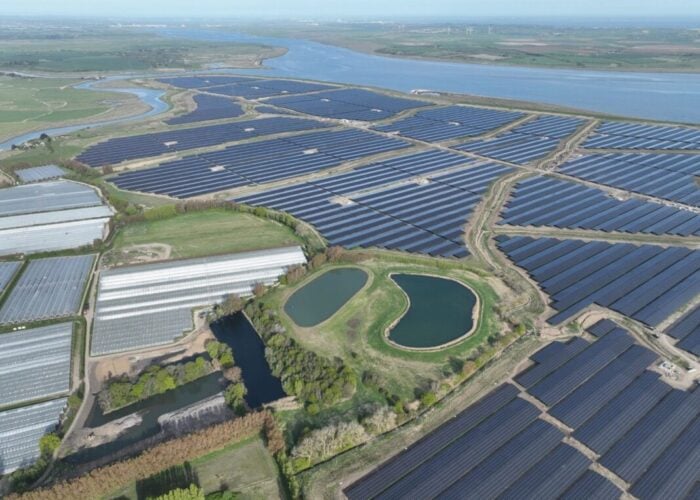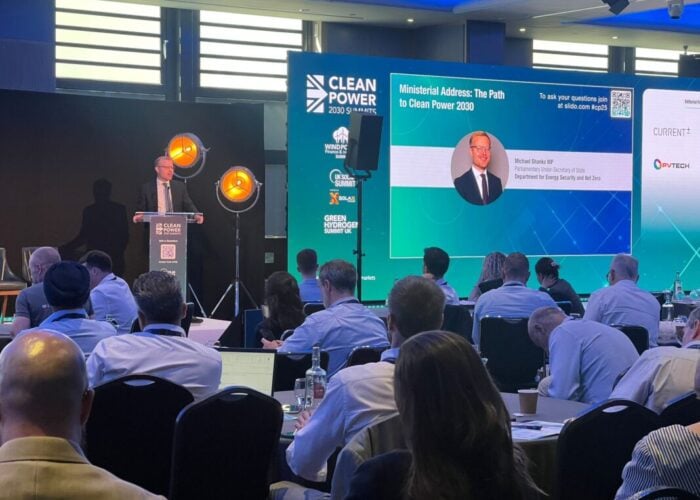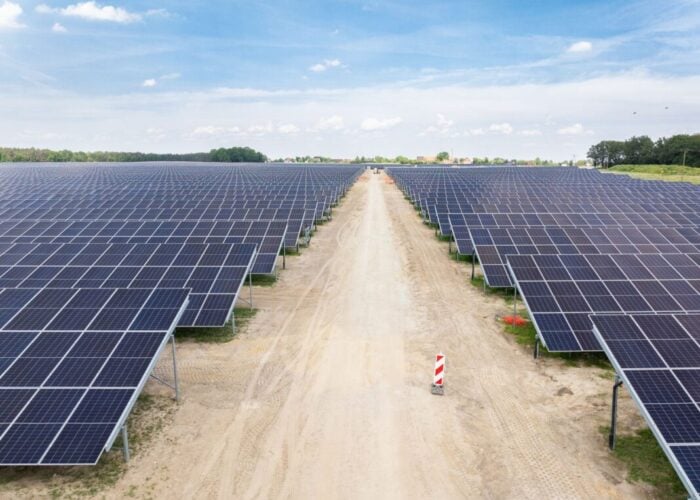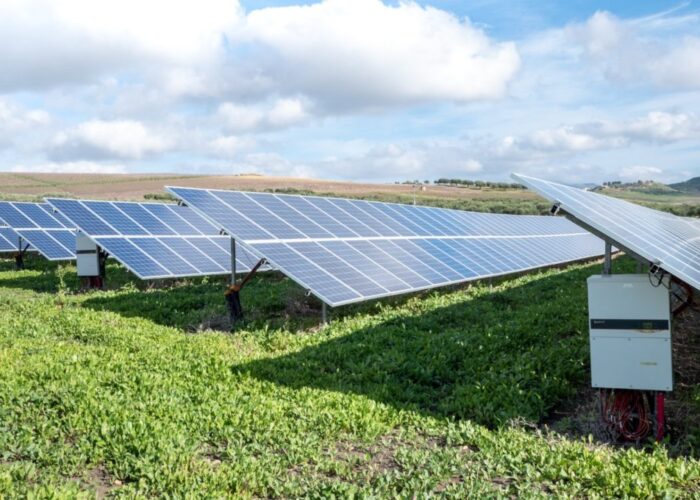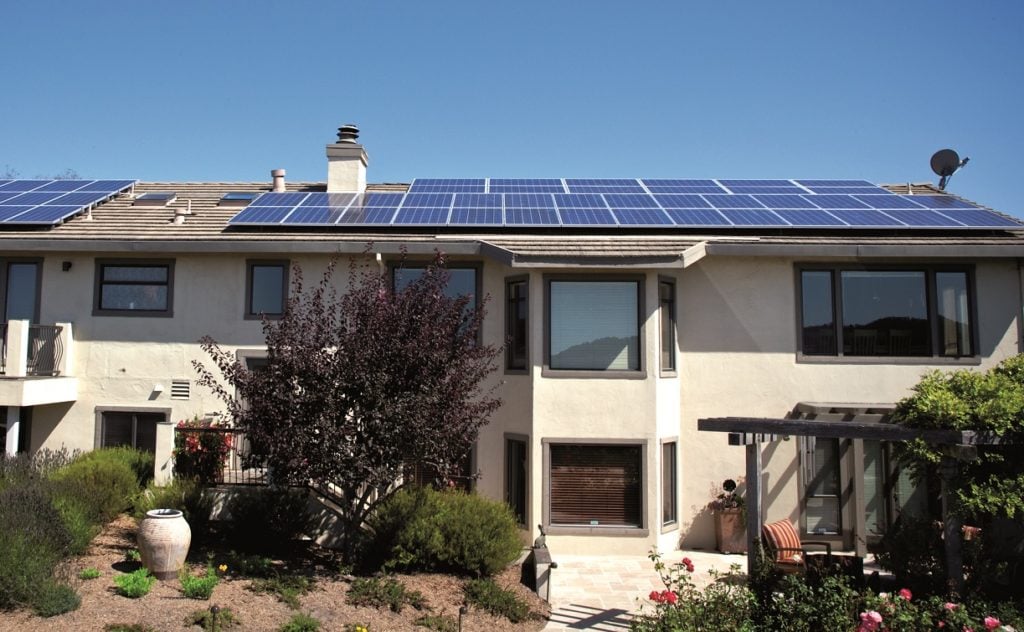
With the solar industry seeing accelerated growth in recent years, discussions around how the industry’s environmental, social and governance (ESG) compliance can be improved has also been growing.
In the solar industry, the way ESG can be measured in different ways, from the supply chain – including its traceability, its sustainability, or its cleanliness – but also the product itself and how solar panels can be better made to avoid using materials that are either not environmentally friendly or are more complicated to recycle.
Unlock unlimited access for 12 whole months of distinctive global analysis
Photovoltaics International is now included.
- Regular insight and analysis of the industry’s biggest developments
- In-depth interviews with the industry’s leading figures
- Unlimited digital access to the PV Tech Power journal catalogue
- Unlimited digital access to the Photovoltaics International journal catalogue
- Access to more than 1,000 technical papers
- Discounts on Solar Media’s portfolio of events, in-person and virtual
In the residential market, customers are becoming more interested in these aspects and asking manufacturers about their ESG considerations, explains Cemil Seber, VP of global marketing, product management & corporate strategies at module manufacturer REC Solar.
“Every year, we see more attention from our customers, for whom this is becoming more at the top of their minds. Usually in PV, it’s been volume price and spec of the product. But now it’s also how do we make that product, besides pure performance,” adds Seber.
Interest from customers has been increasing over the years and requests about ESG compliance have doubled from 2022 to 2023, adds Agnieszka Schulze, head of global PR at REC Solar. A clear example of this increased interest towards ESG was that, for the first time, Schulze says she spoke more about ESG rather than technology at Intersolar Europe in 2023.
While ESG considerations continue to increase, it has yet not come to the point where a customer will regard that as the most important factor in procuring a module, over the performance of it or its price, but is an important aspect.
A point where the industry could improve is bringing that message directly to the homeowner who does not necessarily make the decision as to which panel to install.
“We do put quite a bit of an effort in at least training the installers with the programmes that we have to make sure that they are a bit of an extension of our voice. It’s not always easy for manufacturers, like ourselves, who are very much upstream to go all the way to the homeowner,” explains Seber.
Certainly, the industry has been proactive in aspects of the chain like the recycling of a solar panel when its lifetime comes to an end. Some manufacturers are reducing the use of a particular material in modules, such as in the case with REC Solar which removed lead in its modules.
“We have to think about the end of life of these products. And then what happens if you have a lot of waste, which is not environmentally friendly? Waste, by definition, is not environmentally friendly. But if you have on top of it, waste which is not environmentally healthy, or even worse than a certain standard, then it’s something to really start getting worried about,” Seber adds.
Rather than wait until legislation is passed or trade bodies publish ESG standards – the Solar Stewardship Initiative (SSI) did publish one in October 2023, which is based on existing international standards – the company is already working towards the goal of having more ESG-friendly solar panels, such as the removal of lead among others.
Other aspects the company is working on reducing the amount of energy, water and waste needed; power density, meaning fewer resources are needed for the same power; and performance and longevity, given that the longer a panel is operational, the longer the wait to replace it and recycle it, explains Schulze.
“Right now we are seeing a lot of movement in the recycling area. There are some interesting startups coming up, investigating how you can also improve recycling,” adds Schulze.
There does seem to be a difference between the residential market and utility-scale, with the latter having less concern as to ESG consideration for such large projects, as this could add an extra cost to it.
“It’s fair to say that very large projects, unless it is in the legislation or there’s any regulation or some constraining factor which forces them to use products which are ranking better on an ESG scale, they’re not necessarily going to do it in the same way,” explains Seber as to why there might be less concern for utility-scale projects to implement more ESG elements.
Over time legislation could be passed that includes aspects regarding ESG for modules in the solar industry and mentalities will adapt to it, concludes Seber.

